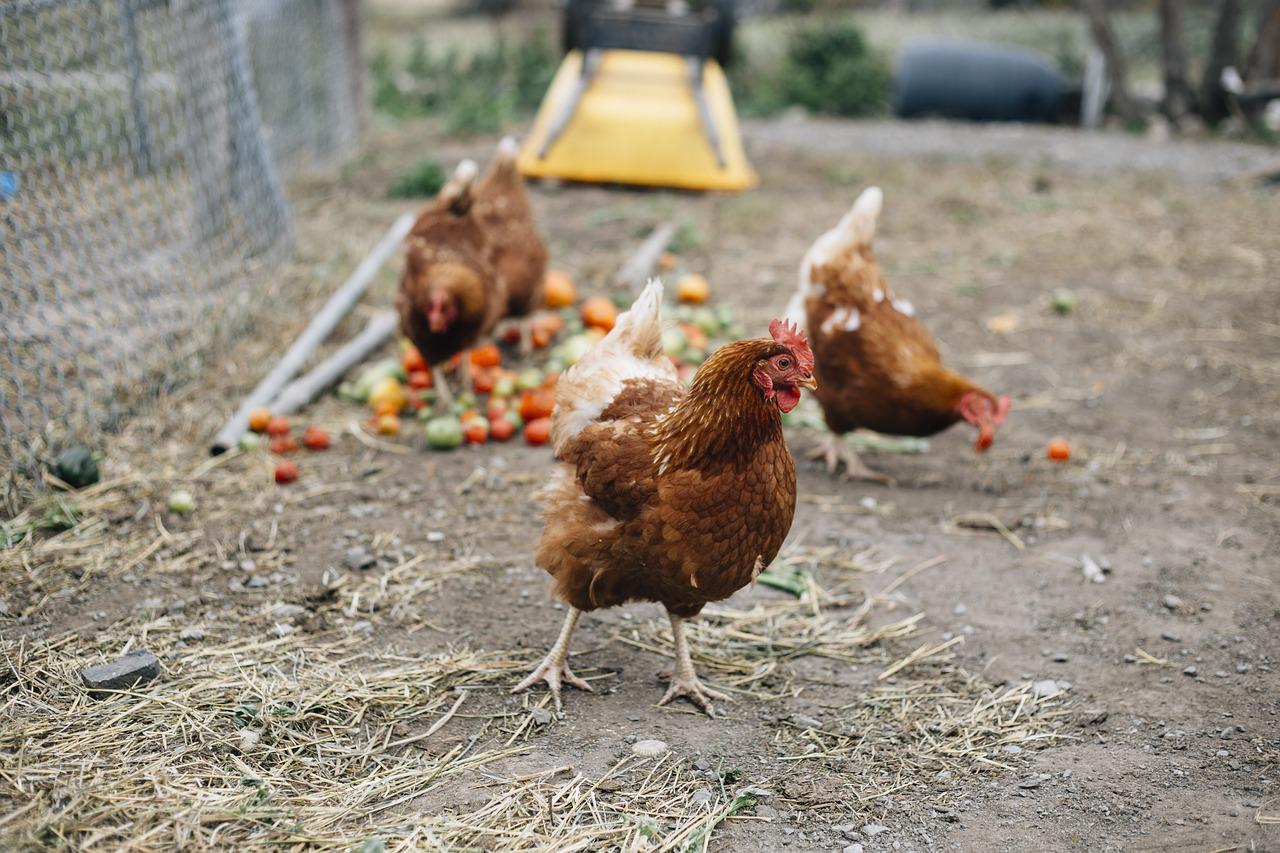The hot composting system is the most efficient approach for composting chicken manure. That is because the composting process is fast and eliminates all the bacteria. You can also use cold composting, making sure you have the right brown to green ratio as well as the right temperature: 130°F - 150°F.
Is the composting method absolutely necessary to complete the task? Isn’t it possible to use fresh chicken manure?
Find out how to compost chicken manure and use it as fertilizer.
Table of Contents
Can I Use Fresh Chicken Manure?
You cannot use fresh chicken manure directly.
Why?
Chicken manure, like other types of manures, harbors microorganisms and other pathogens like Salmonella, which can be a health hazard to you, your family, and even neighbors.
To avoid contamination, you should:
- Put on gloves when handling chicken poop
- Wash your hands thoroughly when you touch it
Moreover, the nitrogen in fresh chicken manure can burn these plants. The nitrogen levels are so high that they destroy roots when they come into contact with them.
Finally, fresh chicken manure can have an unpleasant odor. No one wants to put their veggies in a smelly garden.
Fortunately, chicken manure can be composted to render it harmless to humans and plants.
How Long Does It Take for Chicken Manure to Compost?
If chicken feces are left alone (adding nothing), it may take a year or more to decompose. That is because the nitrate level needs to decrease before the decomposition process can begin.
Afterward, bacteria work on the waste, transforming it into compost.
When cold composting, chicken manure will decompose within 6 to 9 months.
What Is Chicken Manure Fertilizer Good For?
Chicken manure is an organic fertilizer. But it also offers multiple benefits. It is an all-in-one fertilizer that provides the essential macronutrients: nitrogen, phosphorus, and potassium. It also has calcium – a micronutrient necessary for plant growth.
Despite its common use as a fertilizer, farmers enjoy other benefits from chicken manure. For instance, chicken manure helps in:
- Soil amendment
- Enhancing the soil structure, being an organic matter
- It also enhances the soil’s ability to hold moisture, drainage capacity, and aeration
- Immunity against erosion – it can hold the fertilizer more effectively
- Providing food for the microbes in the soil; that helps speed up the rate at which organic nutrients are broken down.
Composting Chicken Manure: A Step-By-Step Guide
These two options are viable for composting chicken manure:
1. Hot Composting
The hot composting system is the most efficient approach for composting chicken manure. That is because the composting process is fast.
This is how it works:
Chicken manure is heated to an internal temperature of at least 130 degrees Fahrenheit for a minimum of 15 days. Heating takes care of the two fundamental problems:
- Time: The high temperatures break down the material fast.
- Contamination: Pathogens die at extreme temperatures, leaving slim chances for contamination.
2. Cold Composting
This is how it works with chicken manure:
Add the chicken coop, straw, sawdust, hay, and shavings to the homemade or purchased compost bin.
Note that compost components can either be green or brown materials. The brown materials include bedding materials, plant debris, small sticks, paper, and leaves. Green material comprises food scraps.
We mentioned that kitchen manure contains high nitrogen content. So, to achieve perfect harmony in your compost pile:
- Mix two parts of brown material with one part of green material.
- Add all materials to the composter or compost bin (usually one cubic yard).
- Mix the components and stir. You may also want to turn the material regularly.
It is essential to measure the bin’s inner core temperature periodically. I recommend that the temperature be at least 130 degrees Fahrenheit and no higher than 150 degrees. That is because the heat generated during the composting process kills Salmonella and E. coli bacteria.
Stirring and turning the compost heap creates room for aeration. Fresh air benefits the good bacteria, as it helps them do their job (decomposing) effectively.
When Should I Put Chicken Manure in My Garden?
You want to use your chicken manure fertilizer during spring.
You could also spread manure in the fall. However, it would help if you did it as soon as possible after removing nitrogen-hungry crops, before planting winter crops, and before adding green manures for garden soil protection during winter.
How Often Should I Use Chicken Manure?
You should spread chicken manure along the garden’s perimeter every four to six weeks from spring to fall.
Adding excess chicken manure to your garden risks causing expensive problems like nitrate leaching, salt damage, excessive plant growth, and nutrient runoff.
Is Chicken Manure Better Than Cow Manure?
Chicken manure is better than cow manure. According to research, chicken manure consists of:
- 5% Nitrogen
- 4% Phosphorus
- 2% Potassium
It has a much higher acidity level compared to other organic manures. You can use it safely in your garden, provided you employ the right composting process.
On the other hand, cow manure comprises:
- 3% Nitrogen
- 2% Phosphorus
- 1% Potassium
Whether you should go for chicken or cow manure depends on different considerations besides what we’ve discussed. But the fact remains that chicken manure is the best choice.

